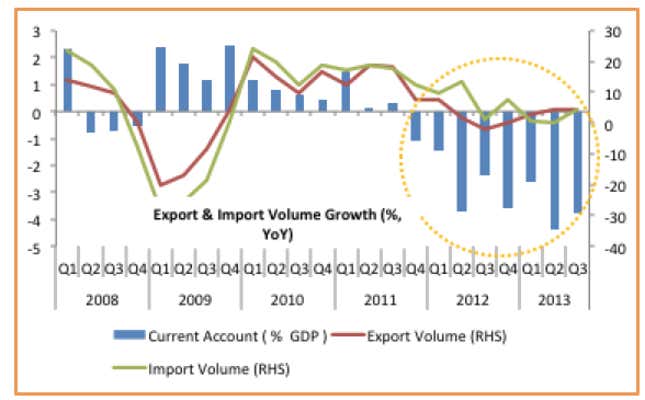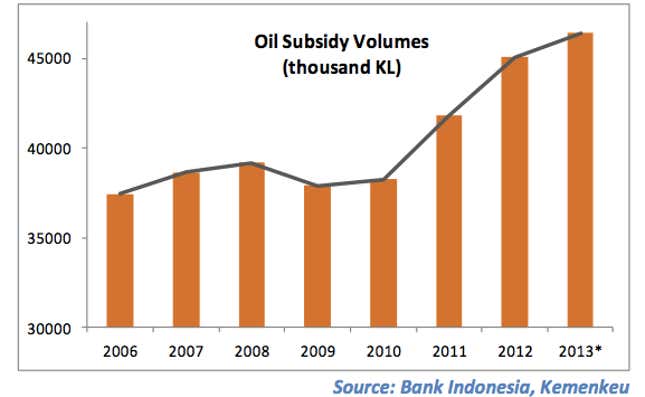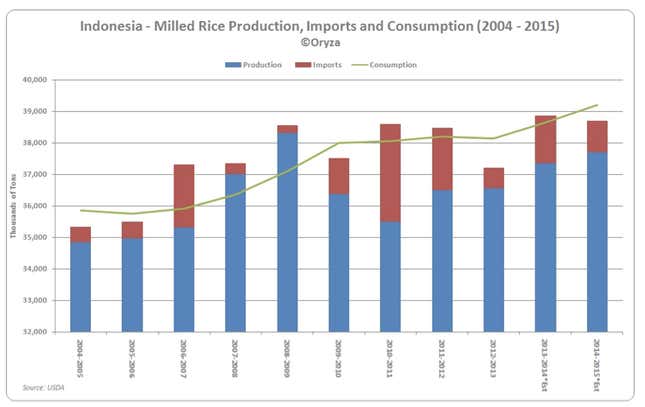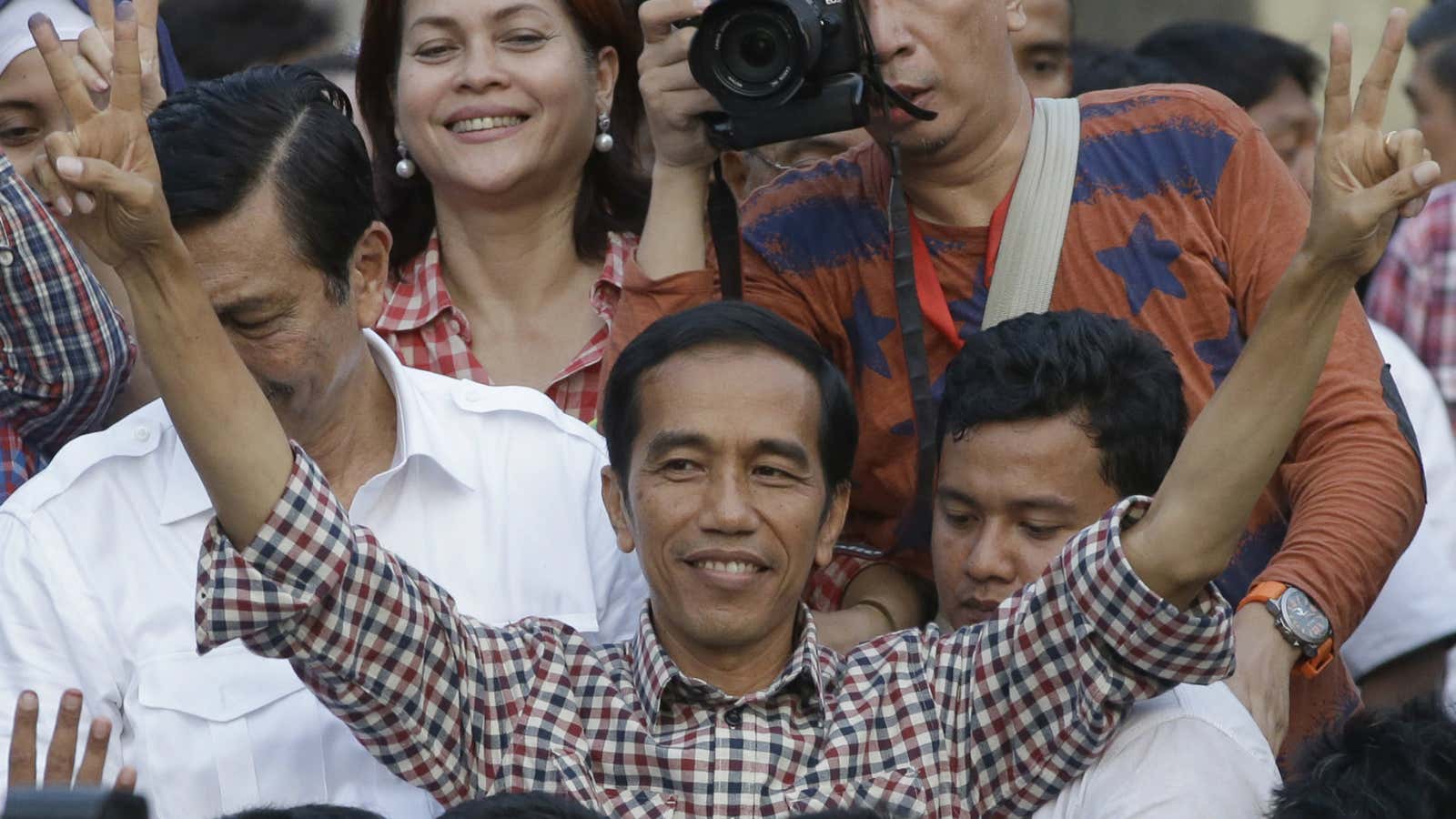Jakarta governor Joko Widodo, widely known as “Jokowi,” was officially declared president of the island nation with over 53% of the vote last night. As part of his well-organized, social media-savvy campaign, the former furniture exporter and child of the slums has made some very specific promises about righting Indonesia’s economy, which has not have lived up to its potential in recent years.
Despite a youthful population and a middle class that is expected to double to about 130 million in the next six years, the country’s economy is fragile, analysts say. Indonesia struggles with high debt and over-dependence on foreign currency inflows. The country’s currency and stock markets were some of the worst-performing in the world last year.
With 247 million people, Indonesia is the fourth most populous nation in the world after China, India, and the US. It is the most populous majority Muslim country (about 88% of the people are Muslim) and the world’s third-largest democracy, after India and the US.
Jokowi has vowed to ramp up Indonesia’s growth from its current rate of 5.2% to more than 7%. That would have a knock-on effect for China, Japan and Singapore, Indonesia’s largest trading partners, as well as boost multinational giants clamoring to do more business there.
Here’s what Jokowi has promised to do:
Cut the deficit
Indonesia’s current account deficit is a major cause of the country’s economic fragility and investor concern. As an official from the finance minister explained in a presentation last year, falling commodity prices, particularly rubber, oil and gas, caused export values to drop:

The country also had to dramatically increase the amount it was paying in fuel subsidies, as demand for oil and gas (and imports of refined products) increased:

Jokowi plans to cut fuel subsidies, which cost the government $20 billion a year, gradually over the next four or five years.
Spend on infrastructure
Jokowi wants to make the local politicians who control a third of Indonesia’s annual budget (about $160 billion) spend more efficiently while trimming bureaucracy. Right now only half of the local budget goes to civil projects, like much-needed road improvements to trim the long travel times between major cities and industrial hubs. On the campaign trail, he pledged to build 2,000 kilometers of new roads, 10 ports, 10 airports, and 10 industrial estates in the next five years, using money saved from fuel subsidies. Finishing just a fraction of these projects could boost exports and tourism.
Grow more rice
Indonesia is the largest per-capita consumer of rice in the world, and the world’s third-largest overall producer, but production has not kept pace with demand for many years. Here’s what that looks like from Oryza.com, which covers the grains industry:

Jokowi has promised to eliminate rice imports by improving irrigation and growing methods.
Expectations for Jokowi, who has been the front-runner for the entire election, and for Indonesia’s economy overall, are high. Even before he was elected, analysts at Lloyds predicted the currency would go from “worst to first” in Asia this year, and the Jakarta Composite Index rallied in recent weeks on the expectation he would win. Now that he’s bagged the election, the hard work really starts.
